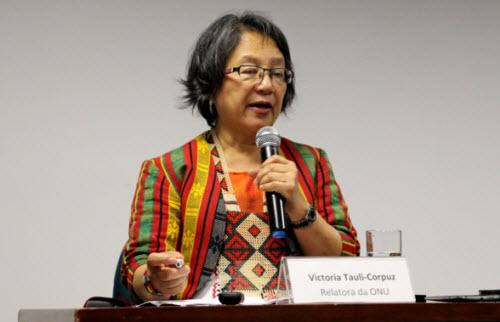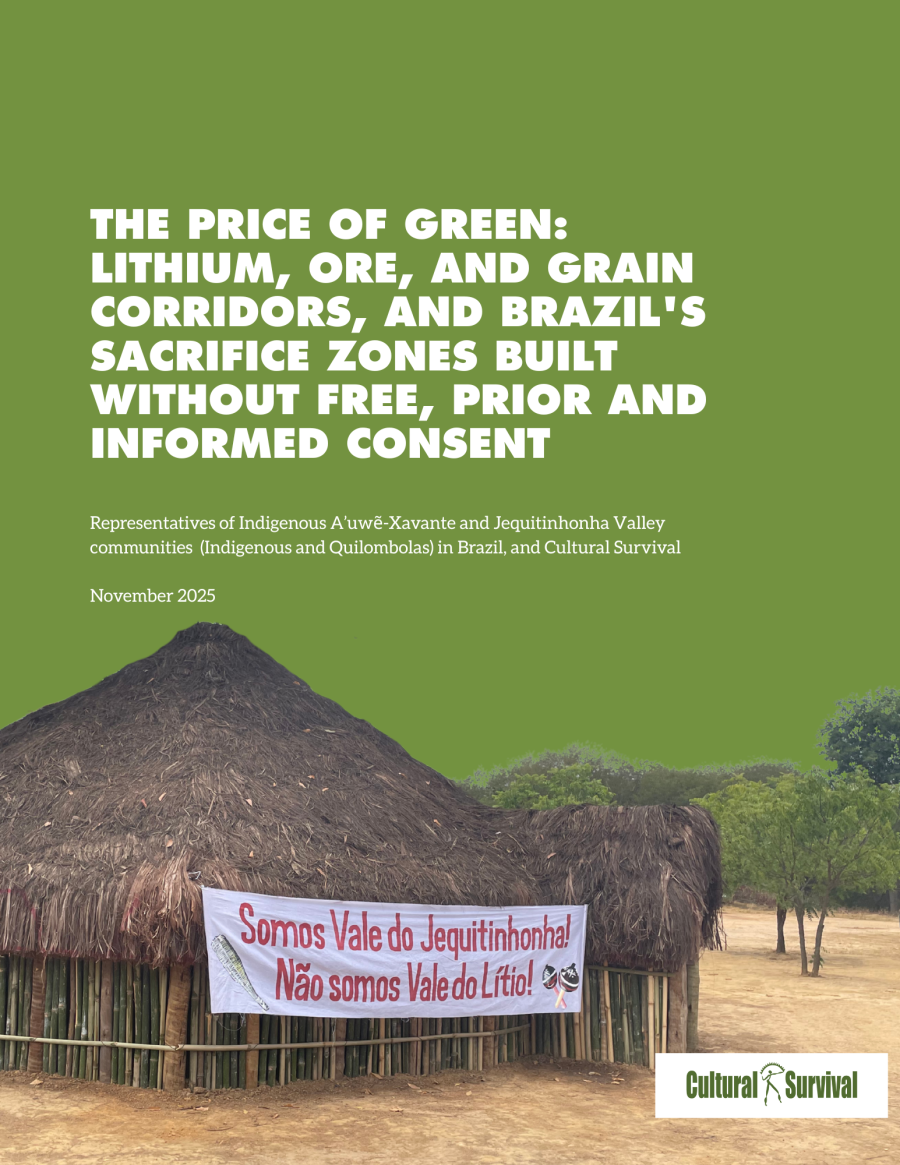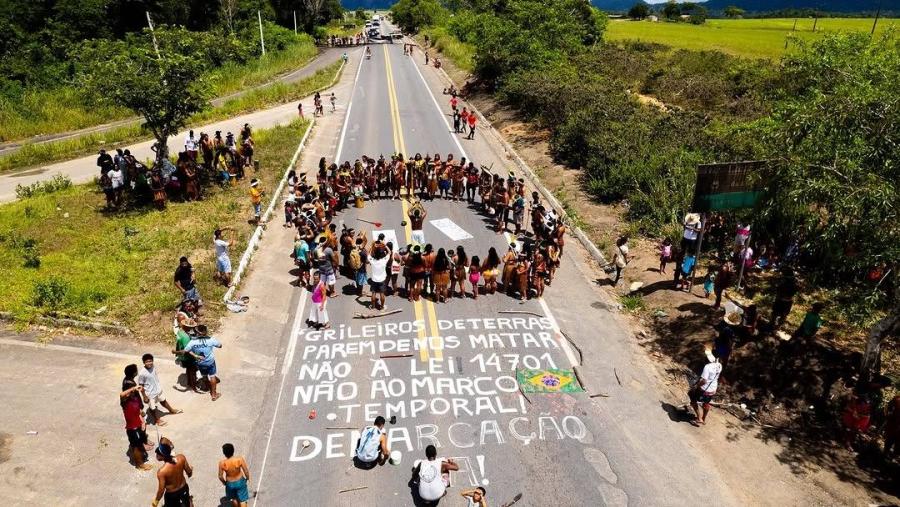
In her recent trip to Brazil from March 7-17, 2016, UN Special Rapporteur on the Rights of Indigenous Peoples Victoria Tauli-Corpuz met with more than 50 Indigenous Peoples to identify and assess the main issues they are currently facing, as well as to follow-up on recommendations made in 2008 by her predecessor James Anaya. Some of the communities she met with include the Yanomami, Maxakali, Manoki, Ka'apor, Guarani-Kaiowa, and the Rede de Corporaçāo Amazonica. Tauli-Corpuz explained that numerous requests for visits were obtained from Indigenous communities throughout the country who described their difficult situations, but due to time constrains she was unable to visit them all.
Immediately following her trip in a statement released on March 17, 2016, the Special Rapporteur provided preliminary observations and recommendations based on her fact findings during her visit, however they do not reflect the full range of issues that were brought to her attention. Tauli-Corpuz commends the government of Brazil for a number of measures and initiatives that have been taken to ensure the realization of Indigenous Peoples' rights. However, among the most pressing concerns expressed by Tauli-Corpuz are documented and reported attacks on Indigenous Peoples, the lagging reality of demarcation of Indigenous Peoples' lands and the negative impacts of agribusiness projects that often result in direct physical violence.
According to CIMI (Conselho Indigenista Missionário), in 2007, 92 Indigenous leaders were killed, whereas by 2014 that number had increased to 138 killings, with Mato Grosso Do Sul being the state with the highest number of deaths. Tauli-Corpuz's other concern about mega projects relates to private actors in the context of development projects that are imposed upon Indigenous Peoples without any consultation or attempt to obtain their Free, Prior and Informed Consent in accordance with ILO Convention 169 and the UN Declaration on the Rights of Indigenous Peoples. A third and final concern outlined in her statement was the urgent need for demarcation processes to be completed, "as this is fundamental to all other rights of Indigenous Peoples."
A full list of Tauli-Corpuz's recommendations include:
"• Immediate measures should be taken to protect the safety of indigenous leaders and to conclude investigations into all killings of indigenous peoples;
• Efforts should be redoubled to move beyond the current impasse in relation to land demarcation, as the urgently needed solutions are possible if the necessary political will exists;
• There is an immediate and pressing need to revisit the proposed cuts to FUNAI's budget and to ensure that local FUNAI offices are not the target of such measures and are instead strengthened to provide the core services which indigenous peoples and other organs of the State rely upon;
• The jurisprudence of the ILO supervisory bodies and the guidance of the Special Rapporteur in relation to the implementation of the right to prior consultations in relation to policies, legislation and projects potentially impacting on indigenous peoples' rights should be reviewed and followed.
• The State should acknowledge and support the proactive measures that are being taken by indigenous peoples to realize their rights in practice in accordance with their right to self-determination;
• Dialogue should be initiated with indigenous peoples in relation to the possible conduct of a National Inquiry to probe allegation of violations of their rights, raise awareness and provide some redress for human rights violations;
• The effective participation of indigenous peoples in the determination of how my recommendations and those of my predecessor can be implemented and overseen should be facilitated."
Tauli-Corpuz will be writing a full report on her findings in Brazil, which will be presented to the United Nations Human Rights Council in September.
For the Special Rapporteur’s full statement go to: http://unsr.vtaulicorpuz.org/site/index.php/en/statements/123-end-mission-brazil
Photo courtesy of http://unsr.vtaulicorpuz.org/



